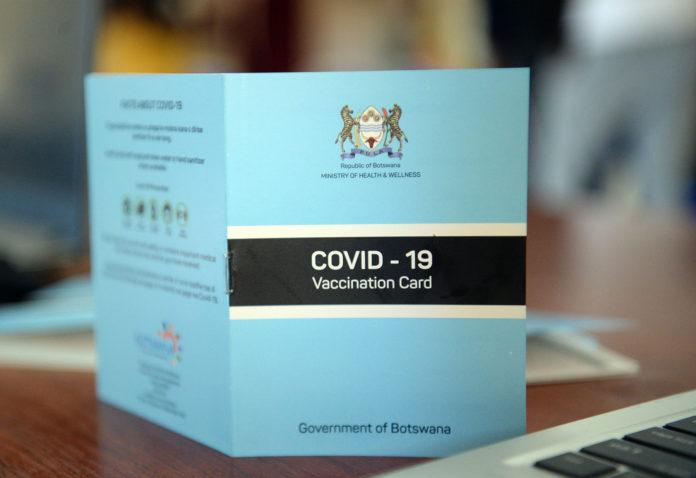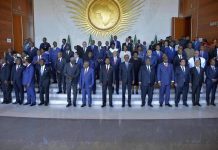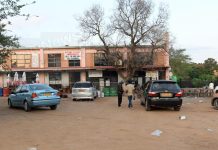Africa-Press – Botswana. The International Monetary Fund (IMF) has called on Botswana to publish audited statements of the COVID-19 Relief Fund after it emerged that the social program may have suffered leakages as the pandemic pushed more than 46 000 people out of work and exacerbated poverty.
In its latest report, IMF urged Botswana “authorities to publish the execution and audit reports of the COVID-19 Relief Fund Order and all related procurement contracts, including beneficial owner information of companies awarded public contracts.”
According to the report, the COVID-19 crisis has stalled the southern African nation’s poverty reduction, and inequality remains high.
IMF revealed that Covid-19, “has caused net job loss of 46,577 through 2021Q4.”
The report shows that unemployment and poverty are rolling back progress towards Botswana’s efforts aimed at recovering from the effects of COVID.
The Briton Woods Institute warned that Botswana’s unemployment (youth unemployment) has worsened to 26.0 (34.4) percent in 2021, up from 24.5 (32.4) percent in in 2022. “The poverty rate is estimated to have increased to 13.1 percent from 12 percent pre-pandemic1, also resulting in inequality.”
There have been concerns that procurement of COVID-19 personal protective equipment (PPE) and vaccinations has been chaotic and marred with allegations of corruption.
Auditor General (AG) Pulane Letebele in her report on Covid-19 also noted a lot of discrepancies pertaining to the country’s COVID-19 preparedness and response.
The Government established the COVID-19 Relief Fund and put up an investment of Two Billion Pula as seed money into it. Individuals and the private sector contributed to this fund as part of their social responsibility.
Meanwhile, the IMF report says Botswana is among the few sub-Saharan African countries where output has recovered to pre-COVID levels.
It says after contracting by 8.7 percent in 2020, real GDP rebounded by 11.4 percent in 2021, mainly reflecting a strong increase in diamond demand and government support.
“The government introduced a comprehensive vaccination campaign and fiscal relief package (2.6 percent of GDP) for households and businesses. The Bank of Botswana (BoB) reduced the policy rate to its lowest level on record and eased regulatory limits on private lending,” the report says.
The IMF commended authorities’ plan to increase social spending and strengthen the social protection system by improving its efficiency.
Despite the recovery, the COVID-19 crisis and the war in Ukraine, the report says, compound Botswana’s long-standing economic challenges.
The report reiterated that despite the positive outlook, Botswana faces difficult challenges. “Unemployment has risen close to historic highs, and poverty and inequality have worsened following the COVID-19 pandemic,” the report says.
It further states that with inflation above the central bank’s objective range, providing support to the most vulnerable through the government social programs remains a priority in the near term.
“In this context, improving the targeting of social programs will reduce leakages. Over the medium term, a sustained reduction in poverty and inequality will require further progress on diversification and digitalization reforms as well as moving away from inward-looking policies such as import restrictions,” the report says.
On balance, the report notes that, given Botswana’s low debt position, the impact of the war on its debt dynamics is estimated to be small. “But without successful diversification of the economy, job creation will be too slow to absorb the young, educated, and growing labor force, and economic gains will remain skewed,” the report says.
According to the report, low fiscal buffers and continued reliance on mining expose Botswana to external shocks, such as geopolitical and climate shocks, increasing the urgency of economic diversification.The further warned that the outlook is highly uncertain. “The growth outlook heavily depends on the path of commodity prices,” the report says. In particular, it says, an abrupt growth slowdown in China or a protracted war in Ukraine could weaken global demand, lowering demand for diamonds. “However, prolonged sanctions against Russia, the world’s largest rough diamond producer, could increase demand for and prices of Botswana’s diamonds,” the report says. The report says other external risks include outbreaks of more lethal and contagious COVID-19 variants, faster tightening of monetary policy in key advanced economies, and climate shocks.
“These could, respectively: hamper tourism and the associated recovery; trigger volatility in global markets and capital flows, exert pressure on reserves, and reduce the demand for diamonds; and threaten agriculture, mining, and tourism,” the report says.
It notes that the war in Ukraine is not expected to have material impact on Botswana’s debt dynamics. Shocks to global financial markets do not significantly affect Botswana’s external debt, which is mostly in the form of bilateral and multilateral loans.
In addition, although the war could weaken Botswana’s economic growth in the short-term, it could also increase the demand for and prices of Botswana’s diamond, thus raising mineral revenue, the report says.
For More News And Analysis About Botswana Follow Africa-Press






